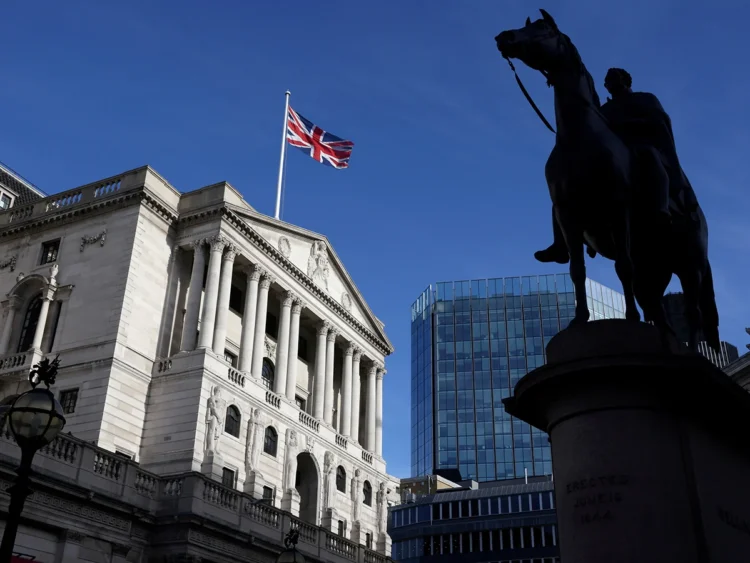Publisher: Maaal International Media Company
License: 465734
The Guardian: BOE’s hesitation over monetary policy could harm growth
The British newspaper, The Guardian, predicted that the hesitation and caution shown by the Bank of England (the UK’s central bank) regarding monetary policy in the coming months would benefit a rising party in the British political scene, the Reform UK party, which leads many opinion polls in the European country. The Guardian noted that continued hesitation would harm growth and make people’s lives more difficult.
The newspaper noted that at the Bank of England’s last monetary policy meeting, the bank’s interest rate-setting committee was divided in three directions, increasing the uncertainty of expectations. Two members of the Monetary Policy Committee voted in favor of a half-percentage-point cut, while two others voted to keep rates unchanged. The majority opted for a compromise, voting for a quarter-percentage-point cut to 4.25%, without clarifying how they would vote in the coming months. The UK Reform Party, led by Nigel Farage, recently won a parliamentary seat from the Labour Party, led by British Prime Minister Keir Starmer, in local elections. The party also won dozens of local council seats at the expense of the Labour and Conservative parties, dealing a significant blow to Britain’s two traditional parties.
The newspaper reported that even if the Central Bank announced that borrowing costs would decline gradually over the next year until they stabilize at a level low enough to stimulate economic growth, this would not strengthen Farage’s position.
اقرأ المزيد
The newspaper added that every cut in interest rates from the current 4.25% to 3%, or even better, 2.5%, could be used by companies to boost production, make critical investments that are important in their timing and impact, or pay down debt, making them more financially secure.
The newspaper noted that these interest rate cuts would help propel the economy forward, fueled by cheaper loans. Financial markets, it reported, have some clarity, believing they know where interest rates are headed, which is gradually falling.
However, Hugh Bell, the bank’s chief economist, warned last Tuesday that investors may jump to conclusions.
The newspaper also noted that economic data this week further complicated the picture. The UK’s GDP grew by 0.7% between January and March, a growth rate that some G7 countries will struggle to achieve until the end of the year. To illustrate the extent of the suffering in some other countries, Italy’s growth forecast for 2025 was recently lowered by the country’s central bank, from 1.2% to 0.6%.
However, according to the newspaper, the central bank considered the UK’s economic recovery to be merely a temporary event in what is expected to be a prolonged period of recession. The bank expects underlying growth to be 0.1% in each quarter of the remaining year, reflecting a low growth rate that suggests the economy may struggle to grow strongly this year. However, the Monetary Policy Committee believes that the strength shown by wage increases is more important, and that this must be curbed before the war on inflation can be won.
The newspaper explained that high wages could lead to a sudden increase in prices, delaying inflation’s return to the Bank’s 2% target.
The Bank enjoys significant support for its conservative stance. The National Institute of Economic and Social Research is also convinced that wage gains are accelerating (by more than 5% annually) and supports a slow easing of monetary policy, according to the newspaper.
The National Institute argued that those who fear that slow easing of monetary policy will hinder growth should urge the government to leave the central bank alone, noting that the task of stimulating the economy falls to Rachel Reeves, the British Chancellor of the Exchequer, who can use the tools at her disposal to stimulate the economy.








